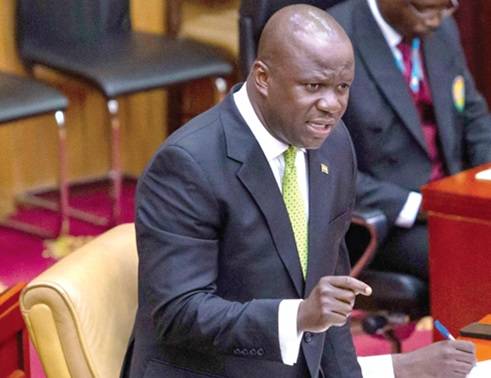Ghana Must Lead Democratic Change in the Sahel - Samuel Jinapor
Introduction
In recent years, the Sahel region has faced numerous political challenges, including coups, insurgencies, and weakened democratic structures. Samuel Jinapor, Ghana's Minister of Lands and Natural Resources, recently stated that Ghana must take the lead in championing democracy within the Sahel. This statement resonates with many who believe that Ghana's stable democratic framework can serve as an example for the region.
Why Ghana Should Champion Democracy in the Sahel
The Sahel, a vast and diverse region of Africa, has been grappling with political instability and conflict. Countries like Mali, Burkina Faso, and Niger have faced military takeovers, causing concern among neighboring nations. Ghana, with its solid democratic credentials, is well-positioned to advocate for peace and stability.
A Beacon of Democracy in West Africa
Ghana’s peaceful transitions of power and respect for democratic norms make it a beacon of hope in West Africa. As Samuel Jinapor rightly pointed out, Ghana's leadership can influence other countries to adopt more stable governance structures. Promoting democracy in the Sahel is not just beneficial to the region but also critical to Ghana's national security.
Political Instability and Its Effects
Political unrest in the Sahel poses a significant threat to Ghana and other neighboring countries. The influx of refugees and the spread of extremism could destabilize the relatively peaceful Ghanaian environment. Therefore, championing democracy in the Sahel aligns with safeguarding Ghana’s own interests.
The Role of International Collaboration
Samuel Jinapor also emphasized the importance of international collaboration in addressing the challenges in the Sahel. Ghana's efforts to promote democracy should involve cooperation with regional and global partners, including ECOWAS, the African Union, and the United Nations.
Practical Steps Ghana Can Take
1. Diplomatic Engagement: Strengthening ties with Sahelian governments and encouraging dialogue.
2. Humanitarian Support: Offering assistance to countries dealing with the humanitarian fallout of conflicts.
3. Capacity Building: Training security forces from Sahelian countries in maintaining peace without undermining democracy.
Challenges Ahead
Promoting democracy in the Sahel is not without challenges. Military leaders in countries like Mali and Burkina Faso have shown reluctance to restore civilian rule. Ghana must navigate these complexities carefully while maintaining its stance on democratic governance.
Samuel Jinapor’s Vision for Regional Stability
As a prominent figure in Ghana's political landscape, Samuel Jinapor’s call to action reflects a vision for a stable and democratic Sahel. By leveraging Ghana's influence and diplomatic prowess, Jinapor believes the region can overcome its democratic deficits.
Conclusion
As the political landscape in the Sahel continues to evolve, Ghana's commitment to democracy will play a pivotal role. Samuel Jinapor's advocacy highlights the need for a collective effort to restore stability and democratic governance in the region. Ghana must rise to the occasion and set an example for others to follow.


